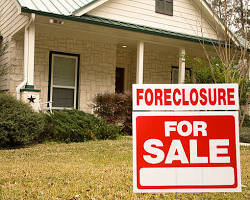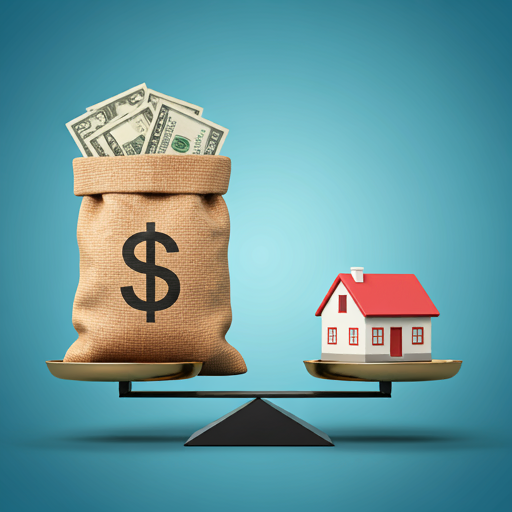Can You Sell a House in Foreclosure in Florida?
Yes, you can sell your house in foreclosure, and in many cases, it’s a smart financial move. Selling the property before it goes to auction can allow you to pay off your outstanding mortgage balance and avoid foreclosure on your credit report. Florida law permits homeowners to sell their properties at any time during the foreclosure process, but timing is critical.
Once the foreclosure lawsuit is filed, you’ll have a limited window before the property is auctioned. In this tight timeframe, selling to a cash buyer could be the quickest route to prevent foreclosure from being finalized.
Selling Your House During Foreclosure
Yes, you can legally sell your house while it is in foreclosure in Florida. As long as the foreclosure hasn’t been finalized and the house hasn’t been sold at auction, you maintain control over your property.

When to Sell:
The sooner you decide to sell your house, the more options you have. Ideally, you should try to sell your home during the pre-foreclosure phase—when the lender has sent a Notice of Default, but before the court finalizes the foreclosure. During this time, you can explore different ways to sell, including listing the house traditionally, negotiating a short sale with the lender, or selling directly to a cash buyer for a quick, no-hassle solution.
Why You Should Sell:
Selling your house before it’s foreclosed offers several benefits:
Moving on quickly: If you’re facing foreclosure, you’re likely dealing with financial stress. Selling your home quickly can help you move on with your life and avoid further financial damage.
Avoiding foreclosure on your credit report: A foreclosure can remain on your credit report for up to 7 years, making it harder to obtain loans, secure a rental property, or even find employment. Selling before foreclosure protects your credit score from this long-term impact.
Paying off your debt: By selling, you can use the proceeds to pay off the remaining balance on your mortgage, legal fees, and other outstanding debts related to the foreclosure.
Table Of Content
1. Can You Sell A House In Foreclosure In Florida?
2. Selling Your House During Foreclosure.
4. The Process Of Selling A House In Foreclosure In Florida State.
5. Obstacles When Selling A Florida Home In Foreclosure.
6. Florida Foreclosure Resources.
7. Selling A House In Foreclosure Common Questions.
8. Easiest Way To Sell A House In Foreclosure In Florida.
3. What Is Foreclosure?
Foreclosure is the legal process through which a lender takes possession of a property when the borrower defaults on their mortgage. This process allows the lender to sell the property to recover the unpaid loan balance.
Types of Foreclosure:
- Judicial Foreclosure (used in Florida): In Florida, foreclosures are handled through the courts. The lender must file a lawsuit against the borrower, and a judge will issue a ruling. If the borrower cannot settle their debt, the court allows the lender to sell the home at auction.
The Impact of Foreclosure on Homeowners:
- Credit Damage: A foreclosure can severely damage your credit score, making it difficult to secure new credit, rent a home, or even find employment in some cases.
- Loss of Equity: If your home is sold at auction, it may sell for less than its market value, meaning you lose any equity you’ve built up over the years.
- Stress and Uncertainty: The foreclosure process is emotionally and financially taxing. It can take months to resolve, leaving homeowners in a state of limbo.
4. The Process of Selling a House in Foreclosure in Florida
The process of selling a home in foreclosure can be complicated, but here’s how it generally works in Florida:
Step 1: Notice of Default
Once you miss a few mortgage payments, the lender will send a Notice of Default. This formal letter notifies you that you are behind on your mortgage and warns of impending foreclosure if you don’t catch up on payments.
Step 2: Pre-Foreclosure
At this stage, you’re officially in pre-foreclosure. This is a grace period during which you still have control over your home and can either catch up on payments, negotiate with your lender, or sell your home.
Step 3: Lis Pendens Filed
If you can’t resolve your debt, the lender will file a Lis Pendens, which is a public notice that a lawsuit has been initiated. The court will review the case and issue a final judgment if the borrower cannot resolve the debt.
Step 4: Court Proceedings
After the Lis Pendens is filed, the court will schedule a hearing. If no agreement is reached with the lender, the court will issue a foreclosure judgment, allowing the property to be sold at auction.
Step 5: Auction
The property is sold at a public auction to the highest bidder. Once this happens, the homeowner loses the home and any potential equity.
Selling Before Auction:
Your best opportunity to sell is before the auction date. Selling to a cash buyer is often the most practical solution because it allows you to close quickly and avoid the stress and delays of a traditional sale.
5. Obstacles When Selling a Florida Home in Foreclosure
While selling a home in foreclosure is possible, it’s not without its challenges. Here are a few common obstacles:
Time Constraints
Once foreclosure proceedings begin, time is not on your side. Selling a home traditionally can take months, but foreclosure auctions can be scheduled within weeks. If you can’t find a buyer quickly, you may lose the opportunity to sell.
Repairs and Condition
Homes in foreclosure often need repairs, which can make them less attractive to buyers. Traditional buyers may require you to fix issues before closing, which can delay the process and increase your financial burden.
Market Conditions
If the real estate market is slow, it may be harder to sell your home in time. In a buyer’s market, you may struggle to find a buyer willing to pay a fair price.
Liens
Your home may have other liens (e.g., tax liens or second mortgages), which complicate the sale. These liens must be settled before you can sell the house, which may reduce your profit from the sale.
6. Florida Foreclosure Resources
If you’re facing foreclosure, there are resources available to help you. Here are a few key options:
Florida Housing Finance Corporation (FHFC)
The FHFC offers programs designed to help struggling homeowners. They provide foreclosure prevention counseling, mortgage assistance, and other financial aid to help homeowners avoid foreclosure.
HUD-Approved Housing Counseling Agencies
The U.S. Department of Housing and Urban Development (HUD) offers free or low-cost counseling services to homeowners facing foreclosure. These agencies can help you understand your options, negotiate with your lender, and explore alternatives to foreclosure.
Florida Hardest-Hit Fund (HHF)
This program is designed to help homeowners who are unemployed or underemployed. It provides mortgage assistance to help borrowers stay in their homes.
Legal Aid
In some cases, you may need legal representation to navigate the foreclosure process. Florida offers legal aid programs that can provide free or low-cost legal assistance to homeowners in foreclosure.
7. Selling a House in Foreclosure: Common Questions
What Happens if My Home Sells for Less Than I Owe?
If your home sells for less than what you owe on the mortgage, the lender may seek a deficiency judgment for the remaining balance. However, in many cases, lenders are willing to forgive the remaining debt if they believe the home was sold for a fair price.
How Quickly Can I Sell My House in Foreclosure?
If you sell to a cash buyer, you can typically close within 7-14 days. This is much faster than the traditional real estate process, which can take months.
Can I Sell to a Family Member?
Yes, but the sale must be conducted at arm’s length, meaning it should be for fair market value and without any special arrangements that benefit one party over the other. The lender must approve the sale, and it cannot appear as an attempt to avoid foreclosure.
8. Easiest Way to Sell a House in Foreclosure in Florida

If you’re looking for the simplest and fastest way to sell your house in foreclosure, working with a cash buyer is often the best option.
Speed of Sale
Cash buyers can close within days, providing immediate relief from the financial strain of foreclosure. There’s no waiting for mortgage approvals, inspections, or repairs.
No Repairs Needed
Cash buyers purchase homes in “as is” condition, meaning you don’t need to invest in costly repairs or upgrades to attract buyers.
No Realtor Fees
By selling directly to a cash buyer, you can avoid realtor commissions, saving you thousands of dollars and simplifying the transaction process.
Guaranteed Sale
Traditional buyers often face financing issues, which can cause deals to fall through. Cash buyers don’t rely on third-party lenders, ensuring a smooth and reliable closing.
Conclusion
Facing foreclosure can be an incredibly stressful and emotional experience, but selling your home before it’s too late offers a way out. By understanding the foreclosure process in Florida, acting quickly, and choosing the right method of sale, you can avoid long-term damage to your credit and financial stability. Selling your house to a cash buyer provides the fastest, easiest solution, allowing you to close quickly and move on without the burden of repairs or realtor fees.
If you’re a Florida homeowner facing foreclosure and need a fast, hassle-free way to sell your home, Atlas Home Buyers, LLC is here to help. We buy houses as-is for cash, allowing you to avoid the lengthy and costly traditional sales process. Contact us today to learn how we can help you sell your home quickly and relieve the stress of foreclosure.

